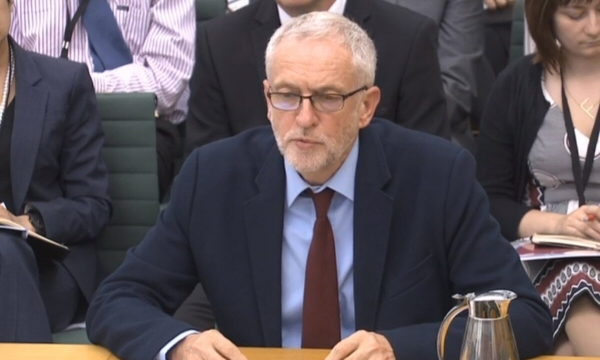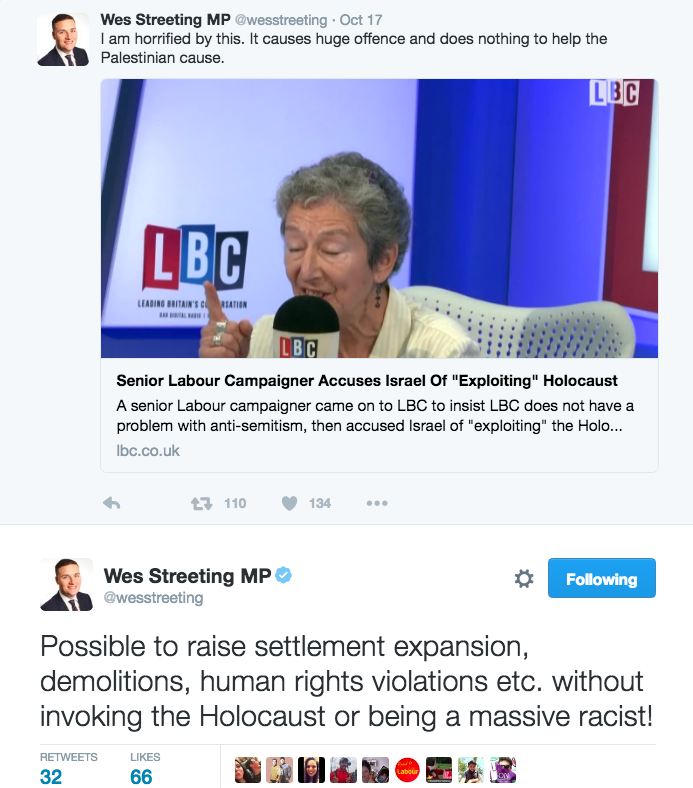There have been people that I admired and respected – people who I saw as generally forces for good, examples to emulate. And then, sometimes, I discovered that they were not the paragons I had built them up to be. The revelation of clay feet is always distressing.
I used to feel that way, sort of, about Parliamentary Select Committees. Well perhaps I was a sad case. But, in the context of the hollowing out of democratic institutions and the progressive centralisation of power, the step-by-step strengthening of the committee system seemed a possible way of holding the executive more effectively to account. The most recent reform, a few years ago, was that committee chairs are now elected by MPs rather than appointed by the party whips. This greater independence was supposed to give Select Committees the independence to set their own agendas, and report without fear or favour. And indeed that does happen. Quite recently a critique by members of the Health Select Committee demolished the government’s false claims about the additional funding they said they were providing to the NHS.
The set up
And then there came the Home Affairs Select Committee report allegedly on Antisemitism in the UK, published in October. Admittedly expectations were not of the highest. It’s chair Keith Vaz had turned the committee’s hearings into a version of performance art with himself as star; and he was still in that role in September (prior to his departure under a cloud) when the committee heard evidence in public. Another member Naz Shah had excluded herself for this item, following her abject apology in response to accusations of personal antisemitism. The result was that by the time the report was issued there were only two Labour MPs left standing – David Winnick and Chuka Umunna.
Umunna had already distinguished himself (in a highly competitive field) for the consistent venom of his verbal assaults on his elected party leader. His willingness to inflict collateral damage has evidently not been dented by Corbyn’s massive re-election victory just ahead of the Report’s publication in October. As we will see the report constitutes a partisan attack on the left of the Labour Party rather than a sober account of the state and significance of antisemitism in the country.
The hearings
Concerns about the likely tenor of the Report were raised by the conduct of the Committee’s public hearings. They provided an opportunity for a further ritual humiliation for Ken Livingstone, and another failed attempt to rile or scare Jeremy Corbyn into saying something he would regret.

By comparison the representatives of Jewish community organisations (Jonathan Arkush of the Board of Deputies of British Jews, Chief Rabbi Ephraim Mirvis and high-ups from the Jewish Leadership Council and the Community Security Trust) were treated with all the respect due to beings from a higher plane. Sample question: “Is there anything your excellency would care to share with us?”. The contrast between browbeating and toadying is still available for viewing at the links in this paragraph, for those with strong stomachs.
Although several organisations (Palestine Solidarity Campaign, and Free Speech on Israel among them) had made written submissions around the distinction between Antisemitism and anti-Zionism none were called to give evidence. This despite the centrality of Israel/Palestine in the specific allegations of antisemitic discourse on the left. There was evidently no appetite to hear Independent Jewish Voices. What they wanted and got was Dependent Jewish Voices.
Taken in isolation this farrago might usefully stand as an object lesson for the future in how not to hold an Inquiry. (In this vein one of my academic colleagues used to give our masters students a really bad lecture, to demonstrate all possible mistakes in presentation.) But in the current fetid climate the critical faculties of many politicians and nearly all main stream media have been rigorously suppressed. With its claque of boosters (Howard Jacobson, Uncle Tom Cobley and all) in full cry, this document is in some danger of being treated as a serious study of the prevalence of Antisemitism in the UK.
Method
There is a method in the Select Committee’s madness. It is composed in unequal parts of bias, denial, denigration, distortion, exclusion, innuendo, partisanship, pejoration, and willful credulity.
Does this seem overdone? Doubters can consult an excoriating analysis by a former specialist adviser to a Parliamentary select committee for the full substantiated horror story. For starters he pointed out that this inquiry, uniquely, had no Terms of Reference, thereby giving the committee carte blanche to wander at will. It seems to have operated, in a highly complex and contested area, without expert advisers. It excluded swathes of witnesses and evidence, cited statistics of dubious provenance evidence without caveats, refused to hear witnesses whom it subsequently criticized, and as far as we can tell failed to show the report in draft to those it traduced for them to offer rebuttals. Oh yes, and quite unusually it dis-embargoed the report on a Sunday in a manoeuvre seemingly aimed at getting onto the Andrew Marr show.
This whole exercise bears the hallmark of a scheme whose end was already known at its outset, and whose process consisted of selectively including, excluding and if necessary tendentiously interpreting evidence to fit the template.
Seriously
A serious study of the issue of Antisemitism in the UK right now would array and carefully analyse the available statistics on type and prevalence of antisemitic incidents. It would put these in context – for example by comparative analysis with other countries, or other types of hate crime. It would discuss the range of potentially causative factors that could be driving the observed behaviour or indeed contaminating the data. This would permit judicious conclusions to be drawn about the seriousness of the problem, and how best to target it.
By contrast Antisemitism in the UK is almost a data- and analysis-free zone. Such data as is adduced it is not critically assessed. Here I will give just a few examples (with apologies to the non-numerate). Attitude surveys show that the UK is one of the least antisemitic countries in Europe, a somewhat inconvenient finding. The report counters this by saying that antisemitic incidents, as recorded by the Community Security Trust, are increasing. However, the case for this is shaky at best. The highest CST figures by far are for 2009 and 2014 – evidently related to Israel’s two most lethal attacks on Gaza. The report does manage to identify an increase in January to June 2016 (though still below those previous peaks); however, this coincides with the barrage of media publicity about alleged antisemitism in and around the Labour Party, whose effect on reporting rates can at least be imagined. But not by the Select Committee, who don’t even mention it as a possible factor.
The glitches continue, and all in one direction. The report cites a survey’s finding that an astronomical 87% of British Jews believe that the Labour Party is too tolerant of antisemitism. But this was a ‘self-selecting survey’; ie the respondents are the people who felt moved to write or click in, certainly unrepresentative of the whole. The sort of caveat that any statistician would expect (at this point I flaunt my masters degree in the subject) against taking this number as meaning anything at all is simply absent.
It goes on. If we stop talking relative increases and start to talk real numbers, the statistical manipulation stands out. The actual number of incidents reported by the Community Security Trust for January through June 2016 is 557. The number of antisemitic hate crimes reported by police in England and Wales for the whole of 2015 was 629. The total number of hate crimes (of all sorts) recorded by the police in 2014-5 was over 52,000. This moral panic is based on just 1%.
One of the more creative aspects of the report is its response to the fact that “police-recorded antisemitic crime is almost non-existent in some parts of England”. The conclusion is obvious – the National Police Chiefs Council should investigate the causes of this under-reporting, and “give support to police forces with less experience of investigating antisemitic incidents”.
Just one more. The Select Committee’s report reproduces figures from the CST indicating that 75% of politically motivated antisemitism comes from the far right. Yet its coverage of the political dimension of antisemitism, in pages, in paragraphs, in recommendations, is overwhelmingly about the Labour Party, and its leader. This focus dominates the later sections of the report, which doesn’t bother to disguise the fact that the preceding material is just there to set up an attack on Corbyn.
Adjectives
Some way back I offered various characteristics of the Select Committee report’s: bias, denial, denigration, distortion, exclusion, innuendo, partisanship, pejoration, and willful credulity. So far I have dealt only with bias, distortion, exclusion, partisanship and credulity. That leaves denial, denigration, innuendo and pejoration to go. The targets of this type of enfilading poison-tipped sniper fire were almost without exception Labour Party members and supporters who had made political criticisms of Israel, or those who had allegedly failed to stop them from doing so.
For fuller details on these transgressions against reasoned debate you will need to consult the detailed critique which I mentioned earlier. But a few examples will give a sense of the style and tone employed:
- the allegations of antisemitism at the Oxford University Labour Club (OULC) are treated as gospel, despite the expulsion of one of the complainants and the discrediting of the other
- the Select Committee criticises Shami Chakrabarti’s report on antisemitism and other forms of racism for not taking account of the Royall report into OULC – but fails to mention that Baroness Royall was a Deputy Chair of her inquiry.
- the report says that when Jeremy Corbyn was giving evidence to the Committee “he was supported by Ms Chakrabarti, who passed him notes throughout the session”. Shock! Outrage! But while we are on the subject, why did the Committee turn down Chakrabarti’s request to be called as a witness herself?
- the report relates that ‘during one of the Gaza campaigns, there were “huge marches” in London at which people held placards that read “Hitler was right”’. And Jeremy Corbyn was there!
- of the now infamous walkout by Ruth Smeeth MP from the press launch of the Chakrabarti Report (her claim to have experienced antisemitism there is refuted by the video evidence) the report says “We have received no confirmation from Mr Corbyn that he has subsequently met with Ms Smeeth to discuss this event.”
The report is littered with other examples of egregious bias either too small to be worth citing (one person ‘agrees’, another merely ‘claims’); or too long and complex (e.g. the innuendo over Chakrabarti’s peerage). This report needs a full-time partiality checker the way that Donald Trump’s campaign needed a fact checker. But we must move on.
The recommendations
In an honest investigative study, the recommendations, subject of course to some constraints, are derived substantially from the facts uncovered and their analysis. From a report as intellectually dishonest as this one is, one gets as recommendations for action exactly what the authors had decided in advance. The recommendations drive the shoddy analysis.
Some of the minor recommendations will do no harm if implemented, and may even do some good – ideas like having a dedicated single police officer in each force as point of contact for all allegations of hate crime. There is also some trenchant criticism of Twitter for its laid-back attitude to the monstering of all sorts which it facilitates on-line.
Going downhill from there we find impertinent lectures to various organisations on how they should conduct their internal affairs. The National Union of Students, for example, is told to let the Union of Jewish Students select the Jewish member of its Anti-Racism, Anti-Fascist (ARAF) Taskforce. Universities UK is told it should prepare briefing packs to, in effect, present the Israeli case on Israel/Palestine in order to balance the potentially baleful influence of Israel Apartheid Week. Note the blurring of the line between racism (antisemitism) and politics (anti-Zionism).
The Labour Party is told how to structure its disciplinary procedures, not to have a statute of limitations on offences, and that it should have specific internal antisemitism training, rather than general anti-racism education. All of this is in direct contradiction of the Chakrabarti recommendations, which were based on clear terms of reference and a rigorous approach.
The big one
Undoubtedly the great thudding motor powering this whole exercise is the recommendation to install an official definition of antisemitism. Not just any definition but a particular one.
The process leading here started off in 2004 when European and US Zionist organisations achieved control of a working group set up by the EU’s European Monitoring Centre on Racism and Xenophobia (EUMC). The working group produced a celebrated definition of antisemitism that is known as the ‘EUMC working definition’ – because the EUMC itself never accepted it. Indeed, the EUMC’s successor body the Fundamental Rights Agency has deleted all reference to the definition from its website. However, the definition was promptly picked up and promoted by the All Party Parliamentary Group on Antisemitism under its chair (then MP, subsequently disgraced) Dennis MacShane.
The definition’s chief author was the American Jewish Committee’s specialist on antisemitism and extremism, attorney Kenneth Stern. Stern’s main concern is with what he calls “politically-based antisemitism, otherwise known in recent years as anti-Zionism, which treats Israel as the classic Jew. Whereas the Jew is disqualified by antisemitism from equal membership in the social compact, antisemites seek to disqualify Israel from equal membership in the community of nations.” In other words, according to Stern, if you are opposed to the Zionist political project, or indeed advocate a boycott of Israel, then you are an anti-Semite.
The EUMC working definition is the grand-daddy of the definition to which the Select Committee wishes to give legal force. But why, suddenly, do we need an elaborate definition at all? It is not too difficult to say what antisemitism is. Oxford’s Brian Klug managed it in 21 words: “Antisemitism is a form of hostility to Jews as Jews, where Jews are perceived as something other than what they are”. The EUMC version takes 514, most of which are taken up with providing examples of what might constitute antisemitic acts, and most of these examples concern views that might be expressed, not about Jews, but about Israel. One might say, and it has been said, that the whole definitional exercise has had the aim of extending the meaning of a well-understood concept, antisemitism, to provide at least a partial shield against criticism for the state of Israel.
The india-rubber definition
The EUMC definition and its descendants has proved Hydra-like in their ability to survive what seem like mortal blows. More heads grow to replace those struck off. The EUMC version was first publicly attacked in the University and College Union, where it had been used to support a (failed) accusation of antisemitism against a member. As a result, the UCU resolved that the definition should henceforth have no role in its disciplinary processes. When in 2012 a UCU member sued his own union for subjecting him to antisemitic experiences, one of his 10 complaints was about the passing of that resolution. All of the complaints without exception were dismissed as without merit by the tribunal judge. And when the successor to Dennis MacShane’s Committee convened in 2015 (under John Mann) it ostentatiously did not repeat the call for the EUMC definition to become official. Instead it commissioned a report from Professor David Feldman (later a Deputy-Chair of the Chakrabarti Inquiry) – which critiqued that definition, and came down decisively for a definition based on Klug’s formulation.
And yet the heads keep growing back. The US State Department has more than once made positive reference to it. Last year it was discovered that the UK College of Policing includes a version of it in its guidance to police forces. And In May of this year the International Holocaust Remembrance Alliance (IHRA) adopted a version that is essentially the EUMC definition. And in turn it is the IHRA wording that the Select Committee urges the government to enact into law, though with a couple of minor wording tweaks.
The threat
The Select Committee report recommends that their definition “should be formally adopted by the UK Government, law enforcement agencies and all political parties, to assist them in determining whether or not an incident or discourse can be regarded as antisemitic”. That is, a law should be passed to change the meaning of a well-understood word, and to back it up by criminal sanctions.
How far are we down the slippery slope? Less than one month after the release of the Select Committee report, the Office of the Independent Adjudicator for Higher Education has ordered Sheffield Hallam University to pay compensation to a student for, among other things, failing to engage with the student’s suggestion about adopting the EUMC definition of antisemitism.
Antisemitism is serious
I am writing this soon after having taken a short break on either side of the French/Spanish border. At Collioure I saw an exhibition on the hardship inflicted there and thereabouts in 1939 on refugees from Franco’s Spain, including many thousands of Jews. In Gerona at the Jewish Museum in the heart of the old Jewish quarter I saw the evidence of the persecution of what had been a flourishing Jewish community, eventually faced by the Inquisition with the choice between forced conversion or sadistic execution. And on my return I went on a Dave Rosenberg walking tour in East London which took in the site of Cable Street’s massive resistance to Mosley’s fascist marchers.
To see the very real and historical thread of antisemitism, still as always a threat, demeaned by such a blatant calculation of political advantage is almost breath-taking.
This is a discreditable joke of a report. But the last laugh could be on those who value free speech.
Jonathan Rosenhead





